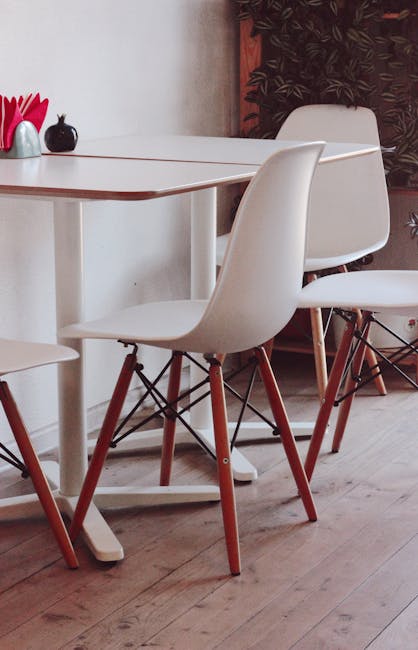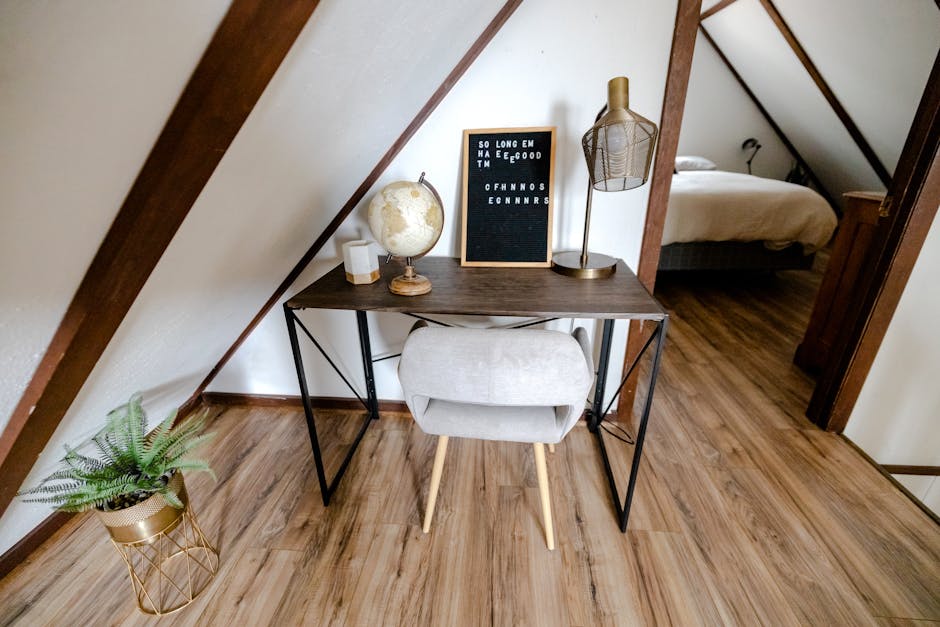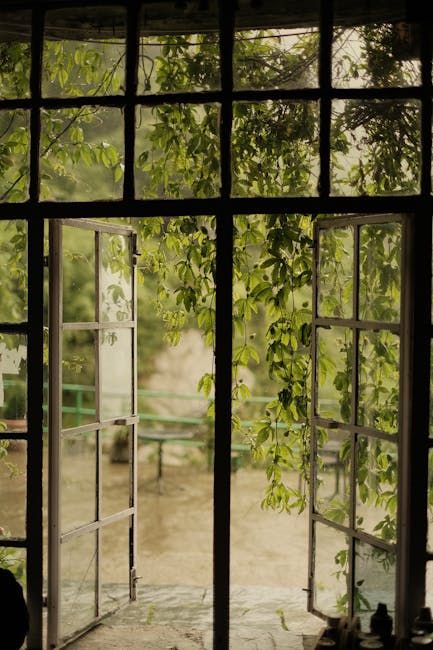Decluttering can significantly enhance your mental clarity by creating a more organized and peaceful environment. Imagine walking into a room where everything is in its place, and you can easily find what you need. This sense of order can translate into a clearer mind, allowing you to focus better and feel less stressed. Keep reading to discover how decluttering can improve your mental well-being and learn practical tips to get started.
Key Takeaways
- Decluttering can reduce stress and anxiety.
- A tidy space can improve focus and productivity.
- Letting go of clutter can provide emotional relief.
- Donating items can benefit others and promote sustainability.
Introduction to Decluttering and Mental Clarity
Definition of Decluttering
Decluttering is the process of removing unnecessary items from your living space. It’s about making decisions on what to keep and what to let go. This practice isn’t just about tidying up; it’s about creating a space that supports your lifestyle and mental health.
Importance of Mental Clarity
Mental clarity is the ability to think clearly and focus on tasks without distraction. It’s crucial for making decisions, solving problems, and maintaining emotional balance. A cluttered environment can cloud your mind, making it harder to concentrate and think clearly.
Connection Between Physical Space and Mental State
Your physical environment can greatly impact your mental state. A messy room can lead to a cluttered mind, while an organized space can promote calmness and clarity. By decluttering, you can create a peaceful environment that supports mental well-being.

The Mental Health Benefits of Decluttering
Reduction of Stress and Anxiety
Creating a Peaceful Environment
A tidy space can create a sense of peace and tranquility. When your surroundings are clutter-free, it’s easier to relax and unwind. This can lead to a reduction in stress and anxiety levels.
Enhancing Relaxation and Focus
Decluttering can enhance your ability to relax and focus. With fewer distractions, you can concentrate better on tasks and enjoy a more productive day. This can lead to improved mental clarity and overall well-being.
Improvement in Overall Well-being
Sense of Control Over Environment
Decluttering gives you a sense of control over your environment. By deciding what to keep and what to discard, you can create a space that reflects your values and priorities. This can boost your confidence and self-esteem.
Increased Productivity and Motivation
A clutter-free space can increase your productivity and motivation. When your environment is organized, you can work more efficiently and feel more motivated to tackle tasks. This can lead to a greater sense of accomplishment and satisfaction.

The Psychological Effects of Clutter
Stress and Cognitive Overload
Clutter can lead to stress and cognitive overload. When your space is filled with unnecessary items, it can be overwhelming and distracting. This can make it difficult to focus and think clearly.
Negative Impact on Emotional Health
Feelings of Overwhelm and Frustration
A cluttered environment can lead to feelings of overwhelm and frustration. When you can’t find what you need or feel surrounded by chaos, it can be emotionally draining.
Decreased Ability to Concentrate
Clutter can decrease your ability to concentrate. When your mind is constantly bombarded with visual distractions, it can be hard to focus on tasks and think clearly.

Steps to Declutter
Setting Realistic Goals
Start by setting realistic goals for decluttering. Break the process into manageable steps and focus on one area at a time. This can make the task less overwhelming and more achievable.
Practical Tips for Decluttering
Sorting and Organizing
Begin by sorting items into categories: keep, donate, and discard. Organize the items you decide to keep in a way that makes sense for your lifestyle. This can help you maintain a clutter-free space.
Creating a Maintenance Plan
Create a maintenance plan to keep your space organized. Set aside time each week to tidy up and reassess your belongings. This can help prevent clutter from accumulating in the future.

Declutter and Donate—It’s a Win-Win!
Emotional Relief from Letting Go
Letting go of clutter can provide emotional relief. By releasing items that no longer serve you, you can create space for new experiences and opportunities.
Benefits to Others Through Donation
Supporting Charitable Causes
Donating items can support charitable causes and help those in need. Your unwanted belongings can become valuable resources for others.
Encouraging Sustainable Practices
Donating items can also promote sustainable practices. By giving your belongings a second life, you can reduce waste and contribute to a more sustainable future.
Clear Your Home, Clear Your Mind
Creating a Tidy Space for Enhanced Clarity
A tidy space can enhance your mental clarity. By removing clutter, you can create an environment that supports focus and relaxation.
Long-term Benefits of a Decluttered Environment
The benefits of a decluttered environment can be long-lasting. By maintaining an organized space, you can enjoy improved mental clarity and well-being for years to come.

Conclusion
Recap of Mental Health Benefits
Decluttering can significantly improve your mental health by reducing stress, enhancing focus, and boosting overall well-being. A tidy space can lead to a clearer mind and a more peaceful life.
Encouragement to Take Action
If you’re feeling overwhelmed by clutter, take action today. Start small, set realistic goals, and enjoy the benefits of a clutter-free environment.
Final Thoughts on Living a Clutter-Free Life
Living a clutter-free life can lead to greater mental clarity and happiness. By letting go of unnecessary items, you can create a space that supports your well-being and allows you to thrive.
For more insights on how to improve mental clarity, check out this article on digital detox and explore the benefits of minimalism. You might also find this piece on journaling helpful in your journey to mental clarity.
For further reading, consider exploring the mental health benefits of decluttering and the psychological effects of clutter to deepen your understanding of this transformative practice.
Discover the Impact of Decluttering on Mental Clarity: Your FAQ Guide
What is the connection between decluttering and mental clarity?
Decluttering can significantly enhance mental clarity by reducing visual distractions and creating a more organized environment. This process helps to clear the mind, reduce stress, and improve focus, allowing individuals to think more clearly and make decisions more efficiently.
How does a cluttered environment affect mental health?
A cluttered environment can lead to increased stress and anxiety levels. It often overwhelms the senses, making it difficult to concentrate and process information. This can result in feelings of frustration and fatigue, ultimately impacting overall mental well-being.
Can decluttering improve productivity?
Yes, decluttering can boost productivity by creating a workspace that is free of unnecessary distractions. An organized environment allows individuals to focus better on tasks, prioritize effectively, and manage time more efficiently, leading to increased productivity.
Is there a psychological benefit to decluttering?
Absolutely. Decluttering can provide a sense of accomplishment and control, which can enhance self-esteem and promote a positive mindset. It can also help individuals let go of the past and make room for new experiences, contributing to emotional well-being.
How often should one declutter to maintain mental clarity?
The frequency of decluttering varies depending on personal preferences and lifestyle. However, regular decluttering sessions, such as monthly or seasonally, can help maintain a clutter-free environment and support ongoing mental clarity.
What are some effective strategies for decluttering?
Effective decluttering strategies include setting clear goals, starting with small areas, categorizing items, and deciding what to keep, donate, or discard. Consistency and commitment to maintaining an organized space are key to successful decluttering.
Can decluttering help with decision-making?
Yes, decluttering can enhance decision-making skills by reducing the number of choices and distractions in one’s environment. A tidy space allows for clearer thinking and more efficient processing of information, aiding in better decision-making.
Are there any long-term benefits of decluttering?
Long-term benefits of decluttering include sustained mental clarity, improved focus, and a more organized lifestyle. It can also lead to better stress management, enhanced creativity, and a greater sense of peace and well-being.
Does decluttering have any impact on sleep quality?
A decluttered environment can positively impact sleep quality by creating a calming and relaxing space. Reduced visual clutter can help ease the mind, making it easier to unwind and fall asleep, leading to more restful and rejuvenating sleep.
How can decluttering influence personal relationships?
Decluttering can improve personal relationships by reducing stress and fostering a more harmonious living environment. It can also encourage open communication and collaboration when shared spaces are organized and maintained together, strengthening bonds and mutual respect.



